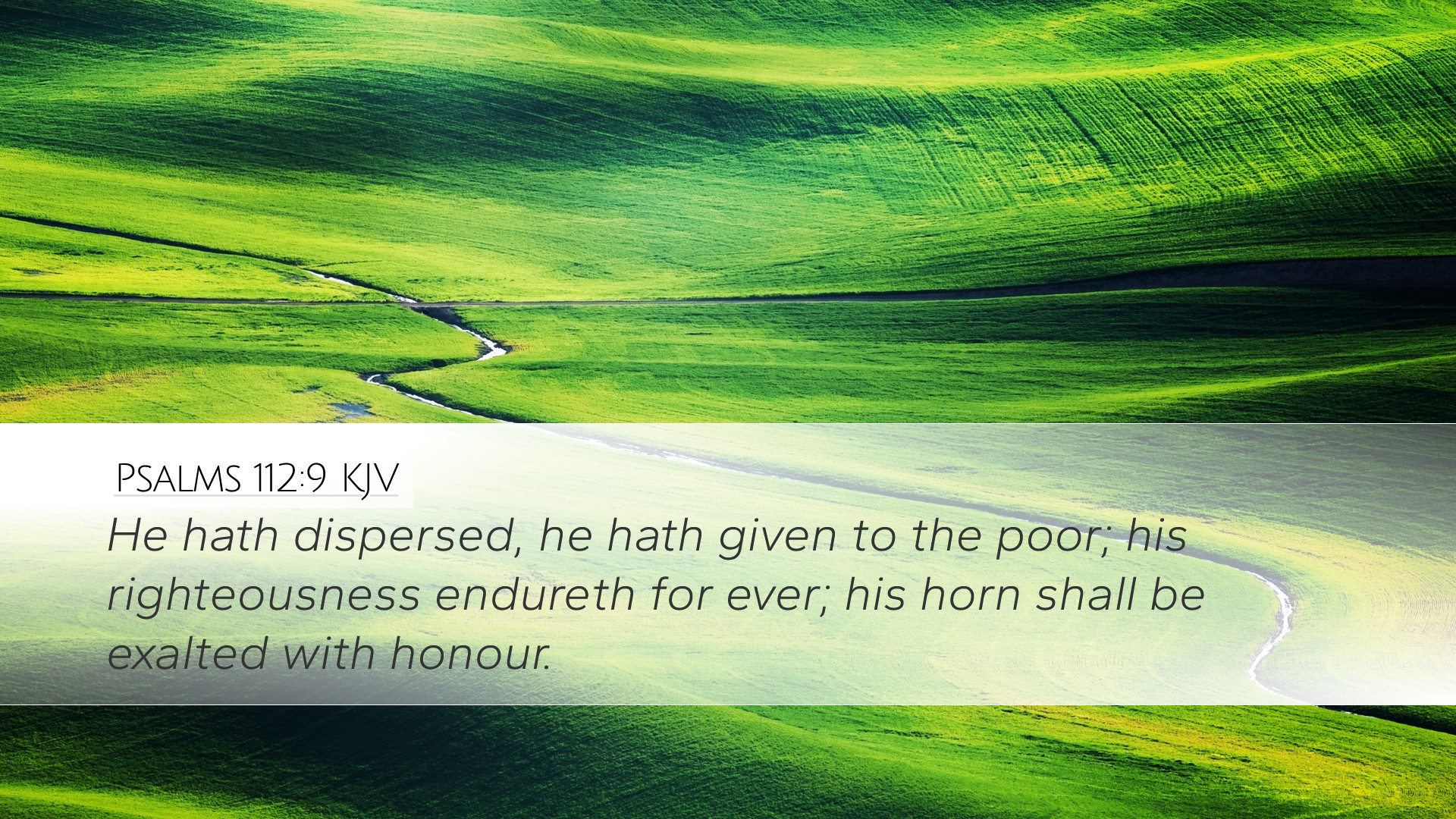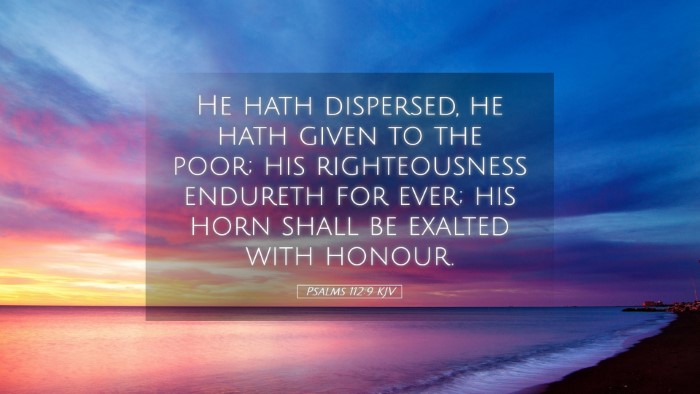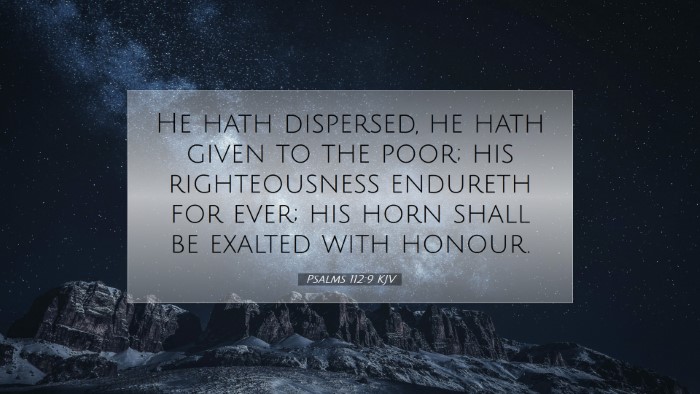Psalms 112:9 - Commentary & Insights
Psalm 112:9 (KJV): "He hath dispersed, he hath given to the poor; his righteousness endureth for ever; his horn shall be exalted with honour."
Introduction
This verse encapsulates the characteristics and outcomes of the righteous man, introducing a profound view on generosity and its eternal impact. Drawing upon the insights of several public domain commentaries, we will explore the theological, moral, and practical implications of this verse.
The Righteousness of the Generous Man
Matthew Henry points out that this verse reflects the intrinsic nature of the righteous man—characterized by generosity and a heart inclined toward the poor. The phrase "He hath dispersed" implies a deliberate act of giving, suggesting that the righteous man actively seeks opportunities to help others. This reflects a deeper biblical principle where righteousness is not merely about following laws, but embodying the love and justice of God through practical actions.
Albert Barnes notes that the act of giving to the poor is a manifestation of one’s righteousness. It indicates that true righteousness is not just an internal state of being but is expressed outwardly through generous acts. The emphasis on "the poor" highlights the moral obligation of the faithful to consider and assist the marginalized in society. In this light, the economy of the Kingdom of God is founded on generosity and mercy.
The Eternal Impact of Generosity
As the verse progresses, it asserts that "his righteousness endureth for ever." Adam Clarke elaborates that the enduring nature of righteousness signifies its permanence in the sight of God. The righteousness of the generous gives rise to a lasting legacy, transcending temporal life and impacting future generations. This teaches us that actions of kindness resonate beyond the immediate moment, aligning with the biblical principle of sowing and reaping (Galatians 6:7).
Honor and Exaltation
The latter part of the verse states, "his horn shall be exalted with honour." Here, "horn" symbolizes strength, power, and dignity. Matthew Henry suggests that such exaltation comes from God and indicates a divine honor bestowed upon those who live righteously. This should encourage believers that their acts of righteousness will not go unnoticed by God, and that He will lift them up in due time.
Albert Barnes points out that this idea of "honor" also conveys social recognition. In a society that often elevates wealth and power, the faithful who give generously are acknowledged by God, granting them a status that surpasses earthly accolades. It aligns with the teachings of Christ, as seen in Matthew 6:20, where treasures in heaven are depicted as far superior to any earthly possessions.
Practical Applications
For pastors, students, theologians, and scholars, this verse calls for reflection on the nature of their influence within their communities. The commitment to generosity should resonate in their ministries and studies. Adam Clarke urges that every act of kindness aligns with God’s character, and thus should be the hallmark of every believer’s life.
- Evaluate Personal Generosity: Consider how your resources—be it time, finances, or skills—are utilized in serving the less fortunate.
- Teach Generosity: In ministry, emphasize the importance of generosity as an expression of faith, not just an ethical duty.
- Lead by Example: Model the kind of dispositional giving that reflects the heart of God, teaching others about the joy of giving.
Conclusion
Psalms 112:9 is a powerful reminder of the efficacy and permanence of righteous actions, particularly generosity. The insights of Henry, Barnes, and Clarke collectively underscore the core message that true righteousness is characterized by selfless giving and that such behavior has a lasting impact. In embracing these truths, individuals are not merely participating in a philanthropic act but participating in a divine order of justice and mercy that echoes through eternity.


